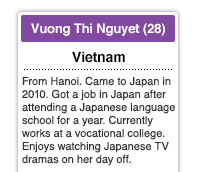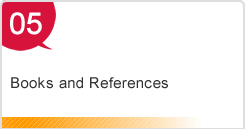Why the JLPT is Worth It
I majored in Japanese at a university in China and we had to pass the JLPT Level 1 (the old test) to graduate. I found it hardest to study for the listening section. In those days I didn't have much chance to hold conversations in Japanese, and a lot of the test questions were from everyday conversation, so it wasn't just the grammar. I tried to get a grasp of Japanese daily life and culture, for example, by watching Japanese TV dramas.
I was bad at kanji, so I used to answer the practice questions for the test over and over again. In addition to that, I used to read Japanese news on the Internet and read Japanese books, trying to boost my exposure to kanji.
Kanji was my weakest point as well, so I made flash cards and studied every day. I would write down a kanji, its pronunciation and the phrases that include it. I wrote more than 2,000 kanji in my flash cards and memorized them.
2,000!!
I'm really glad I worked so hard at it. I believe that I got into my first choice of university in Japan, partly thanks to my JLPT certification.
I was asked about my JLPT level when I was job hunting in Japan, too, not just when I was applying for university. A JLPT certification is important for getting a job as well.
In Vietnam, there were a lot of companies that give you an extra salary allowance if you have a JLPT certification, so it's also useful if you want to get a good job in your home country.

And the things I learned for the test are really helpful for my daily life now in Japan.
I think so, too. The grammar I studied for N2 is really used a lot in everyday conversation, and when I'm talking with people at work I often think, "Hey, that's straight out of an N2 paper!"
![]()

JLPT Bulletin 2013
read

-
- *Outside Japan, the test may be held only in July or December in some cities. Click here for the test schedule in your city.
End of Text














